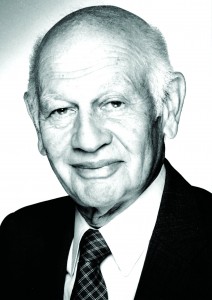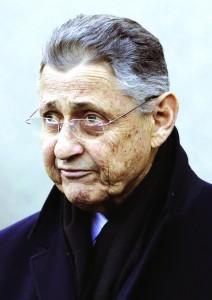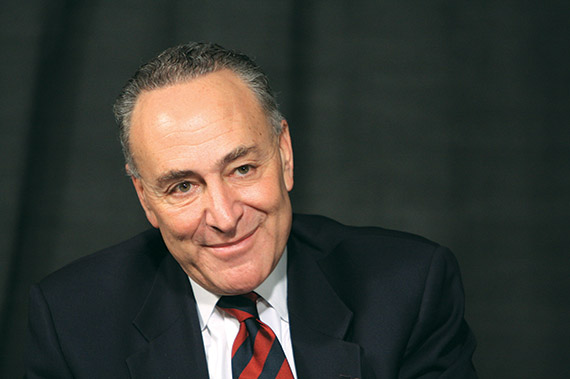Politicians are supposed to be on the “people’s payroll,” U.S. Attorney Preet Bharara told a crowd of lawyers the day after unveiling an explosive series of criminal charges against former State Assembly Speaker Sheldon Silver.
“They’re not supposed to be on retainer for the wealthy special interests they do favors for,” he said.
Bharara never specified which “special interests” he was referring to. But his complaint against Silver makes clear that the New York City real estate industry is at the top of that list and will probably play a starring role if the case ever goes to trial.
And, he said, his investigation is far from over.
That warning, sources said, has those in the industry uneasy. Even those who haven’t done anything illegal may well get swept up in Bharara’s expanding investigation.
“The Silver indictment and investigation has important political players in Albany on edge and it has the real estate industry in New York City on edge,” said John Kaehny, executive director of Reinvent Albany, a group that advocates for more government transparency. “Where it goes nobody knows. He’s got everybody’s attention.”

Leonard Litwin
As the public now knows, the charges against Silver cite two unnamed developers — one of whom has been identified in the press as Leonard Litwin, the 100-year-old CEO of Glenwood Management. Both Litwin and “Developer 2” hired the law firm Goldberg & Iryami, which the complaint says paid Silver referral fees that the ex-speaker did not properly disclose.
Those payments are now at the very core of the case. They were made, as the complaint points out, while the extension of the 421a tax break, which saves city real estate players $1 billion annually, was before the Assembly.
If any other industry players are so much as brought in for questioning — and sources say that’s likely — they will be dealing with a dogged prosecutor who, during his six years as the U.S. attorney for the Southern District of New York, has never shied away from big targets. Even some of his staunchest adversaries grudgingly said he’s doing a solid job.
“His office is highly competent,” said attorney Jerry Shargel, who defended former state Sen. Malcolm Smith after Bharara charged the one-time rising political star of trying to rig the New York City mayoral election. (Smith was convicted last month and will be sentenced in July.)
“There is always the familiar complaint [about Bharara] from defense lawyers about too much publicity and being interested in a different political office in the future,” Shargel. “But, look, he is doing a very good job. If a person is holding the top law enforcement office, I don’t think being aggressive is cause for condemnation.”
A Pandora’s Box

650 Fifth Avenue
As U.S. attorney, Bharara oversees more than 200 lawyers, prosecuting some of the nation’s most high-profile cases.
He has compiled an impressive record of wins, including more than 85 convictions on insider trading alone, though some have since been overturned. Among his targets have been big-time hedge funders, including the billionaire founder of the Galleon Group, Raj Rajaratnam, and several former traders from Steve Cohen’s SAC Capital Advisors.
Yet over the course of a headline-heavy tenure as the Southern District’s top federal prosecutor, Bharara — who was appointed by President Barack Obama in 2009 — has hardly touched the real estate industry.
Bharara’s most high-profile New York City real estate case to date involved the Iranian government. Bharara forced the forfeiture of a 36-story office building at 650 Fifth Avenue from entities that served as a front for the Iranian government.
But the case against Silver opens a new Pandora’s Box, observers said.

Sheldon Silver
The key allegations cut straight to the heart of some of the industry’s high-priority interests. In the charges against Silver, Bharara explicitly refers to the 421a program, which big-time players like Extell Development and Silverstein Properties have controversially been granted for luxury buildings.
Through a spokesperson, Extell defended the credits. “Economically, in both good times and bad, the 421a program has been a key component to the public policy to create affordable housing, economic growth, jobs, and tax revenue,” the statement said.
Still, that didn’t stop sign-waving protesters from demonstrating against the tax breaks outside Extell’s One57 last month.
The indictment, which was handed up by a grand jury last month, doesn’t mention 421a by name. But it refers to representatives for Developer 1 meeting with Silver to discuss “certain government subsidies, programs and tax incentives.”
It also notes that Silver backed legislation favorable to Developers 1 and 2, which included “but is not limited to” proposals made by Glenwood’s lobbyists “with respect to the Rent Act of 2011.” The 421a extension was included in that law.
Mike McKee, of the tenants activist group Tenants PAC, said that Silver’s “pro-landlord” positions in that bill went beyond supporting 421a, including provisions for moving rent-stabilized apartments to market rate.
“We’ve wondered for years why Silver sold us out,” McKee said. “Now we know.”
Good government groups say the 421a tax breaks are an obvious place to look for corruption, given the small slice of special interests that benefit from it.
“This is a straight-up public subsidy to the real estate industry,” said Reinvent Albany’s Kaehny.
“It has grown so large only because of the massive amounts of money the New York City real estate industry gives to state and city politicians,” he added.
As such, it did not take long for the media to trace Bharara’s description of “Developer 1” back to Glenwood’s Litwin.
Developer 1, Bharara wrote, “has contributed more than $10 million for candidates for state office and state political committees” since 2005, including $200,000 to Silver and a political committee he controls. Developer 1 also “in or about 2014 paid approximately $900,000 to eight different lobbyists … to lobby state government officials, including Silver.”
Though Litwin has not been charged with any wrongdoing, he and his firm are likely to feature prominently if the case moves to trial. Glenwood declined to comment.
Bharara provided little detail about “Developer 2,” beyond noting that the developer also lobbied Silver and had been asked by the speaker to hire the law firm run by his former counsel, which then paid him a fee.
Court of public opinion
Bharara, a dapper dresser with piercing eyes, is a skillful speaker, who often wins over crowds with his dry wit, self-deprecating humor and pop-culture references.
For example, last month at a New York Law School breakfast, he softened what could have been perceived as a finger-wagging speech on corruption with references to Ted Danson, Bruce Springsteen, “Happy Days” and the movie “Three Men and A Baby.”
Yet some of Bharara’s opponents criticize him for that type of public showmanship, saying he wages a battle for public opinion before ever setting foot in court.
“I had never encountered such an aggressive public relations campaign before and during trial,” one defense attorney, who lost to Bharara in court, told The Real Deal. “It was very effective and poisoned the public well.”
Meanwhile, last month, the New York Daily News cited a number of Albany lawmakers complaining that Bharara was grandstanding and unfairly tarring the entire institution with the same corruption brush.
But Bharara isn’t likely to hold back.
During his New York Law School speech he said that Albany is mired in “an overabundance of greed, cronyism and self-dealing” and deadpanned that some of the elected officials in the crowd had probably shown up seeking immunity.
Yet he left little doubt that he plans to clean it up.
“Whenever corruption is on the rise, that means democracy is on the decline,” he said. “That means that law enforcement will use every single means at our disposal: wiretaps and undercover agents and stings.”
What that means for the developers and lobbyists who might end up ensnared in the dragnet is yet to be seen. But those who know Bharara say he is not one to kowtow to anyone.
Getting the ‘robber barons’
A native of India, Bharara was brought to the U.S. in 1970, when he was two, and settled in Eatontown, New Jersey.
His father, a pediatrician and the patriarch of a large family, opened a practice in nearby Asbury Park, a decision that turned his son into a rabid Bruce Springsteen fan. (The admiration is mutual. Springsteen once yelled: “This one is for Preet Bharara!” at a concert, then launched into a rendition of “Death to my Hometown,” which includes the line, “Send the robber barons straight to hell.”)
“We grew up very modestly,” Bharara’s younger brother Vinit told TRD during a phone interview. “It was a very normal childhood in suburban New Jersey.”
In elementary and middle school, Preet was a “classic geek,” with big glasses, braces, and his head always in a book, Vinit said.
Their father instilled a strong sense of ethics. “He was just a very stern guy. He doesn’t drink, he doesn’t smoke, and he’s very disciplined. He was all about the grades and making sure that we did well,” Vinit said. “Respect, manners, civility, principles — that has always been his preach.”
The hard line worked.
Growing up, Preet Bharara’s heroes weren’t pro athletes; they were justice seekers like Bobby Kennedy.
“He loved the law from a very early time, and he loves being a prosecutor,” Vinit said. “He has a very strong set of principles — and that’s kind of what a prosecutor does, right? Brings people to account.”
Bharara’s dry, self-deprecating humor emerged in high school, where he was valedictorian.
He then went onto Harvard University and Columbia Law School before working in private practice for several years. In 2000, he took a job as an assistant U.S. attorney in the Southern District, first under Mary Jo White and then under James Comey. His career path was set.

Chuck Schumer
Lessons in scandals
After his five-year stint as an assistant U.S. attorney, Bharara jumped over to the Senate Judiciary Committee, where he worked for Sen. Chuck Schumer.
Sources said he was quick to reach across the aisle. One senior aide who worked with Bharara on the committee said he was not a “dagger thrower.”
The colleague remembered Bharara not only as highly intelligent, but also as a charmer who “had a way of building relationships.” The colleague recalled Bharara impersonating his preschool aged son pretend talking to Schumer on his toy phone. “It would bring the house down,” he said.
During his stint in D.C., Bharara was best known for his role in investigating a high-profile 2007 scandal in which the Justice Department (under President George W. Bush) was accused of firing a slew of U.S. attorneys for political purposes. The investigation culminated with the resignation of then-Attorney General Alberto Gonzales.
In the lead up to high-profile hearings, Bharara and other Judiciary Committee staffers spent hours interviewing witnesses. Sources noted that the task was challenging because while the staffers were working for a Democratic committee, many of the witnesses were Republican appointees.
Bharara, the senior staffer recalled, was “very effective in that room.”
Bharara’s years in D.C., sources said, largely shape his view of elected leaders.
Daniel Richman, a Columbia University law professor and long-time Bharara friend, said it helped “form his views on the importance of independence” by U.S. attorneys.
“All U.S. attorney offices are places that ought to be removed from politics to the extent possible, and really ought to pursue cases wherever they go without worrying about fallout,” Richman said, recounting Bharara’s thinking.
At the very least, the scandals in Washington were good preparation for the battles Bharara waged after Obama appointed him U.S. attorney at the urging of Schumer.
Robert Raben — a former assistant attorney general and prominent Washington lobbyist — said working under Schumer also gave Bharara a sophisticated understanding of messaging and politics.
That understanding, Raben said, is more than a little helpful in Bharara’s current position.
As a prosecutor, Bharara is constrained in what he can publicly say. He did, for example, not comment for this story.
But like his predecessors, he’s become adept at maximizing the media impact of his criminal charges, Raben noted.
“To thread that needle requires a tremendous political acuity,” Raben said.
No political pressure
Some say Bharara’s current investigation is likely to extend to other real estate players and politicians.
For starters, Bharara took over the investigation after Gov. Andrew Cuomo disbanded the state panel known as the Moreland Commission, which the governor himself created to investigate corruption in Albany.
Last July, Bharara penned a threatening letter to Cuomo suggesting he might investigate the Cuomo administration for obstruction of justice and witness tampering after four Moreland Commission members issued statements defending Cuomo’s decision to shut down the panel. Soon after, Cuomo hired prominent defense attorney Elkan Abramowitz.
Bharara is also reportedly investigating the role Cuomo’s aides played in shutting down the commission.
Cuomo, the New York Times reported, attempted to block plans by the commission to subpoena the Real Estate Board of New York to investigate, among other things, the organization’s political donations, materials related to 421a and its communications with public officials.
Investigators also unearthed what the newspaper called “unusually direct memorandum” sent by Steven Spinola, REBNY’s outgoing president, asking members to donate to Assembly Democrats.
“I can tell you that in private meetings with the speaker, the Senate majority leader and the governor, our past efforts to maintain a personal and supportive relationship was critical in shaping the outcome’” of legislation, Spinola wrote. “Our future ability to adopt favorable legislation, stop terrible legislation or modify legislation to limit the pain to our industry is directly tied to our continued positive relationship.”
Unlike the Moreland Commission, Bharara is presumably free of political pressures and likely to examine all of these relationships for potential improprieties.
And news stories have already surfaced reporting that Bharara is investigating State Senate Majority Leader Dean Skelos and whether his outside income has any ties to the real estate industry. Skelos’ office issued a statement dismissing such suggestions as “irresponsible.
Blair Horner, legislative director of the non-profit New York Public Interest Group, has been closely following Bharara’s actions, and predicted that the prosecutor is just getting started.
“We’re still in the early stages of this thing,” he said.
Correction: A previous version of this post incorrectly identified the real estate law firm hired by Leonard Litwin and Developer 2. The company is Goldberg & Iryami, not Weitz & Luxenberg.
